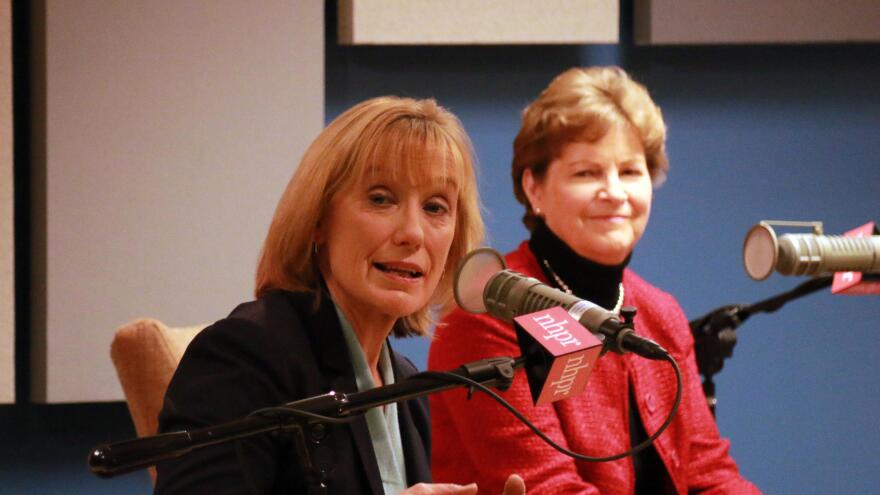U.S. Senators Jeanne Shaheen and Maggie Hassan broke with their party’s leadership Sunday to back a deal that could end the longest government shutdown in U.S. history. But the proposal, which failed to guarantee an extension of the expiring Affordable Care Act tax credits Democrats have prioritized, is also dividing their party.
Shaheen, Hassan, and Maine independent Sen. Angus King — all former governors — worked on the proposal that would reinstate workers fired during the shutdown, provide back pay to air traffic controllers and members of the military, restore benefits to the low income food program known as SNAP, and fund the federal government through Jan. 30.
The deal also tees up a December vote on the health insurance tax credits that now help more than 20 million Americans afford health care.
“I believe there are a number of Republicans who are going to join us in trying to address health care costs, but we are also turning the government back on,’ Shaheen told Fox News on Monday.
“The American people will see who stands with them on health care and who does not, and that will be the platform of the next stage in the fight,” Hassan said after the 60-40 vote to advance the proposal. “I hope we can find bipartisan agreement on an extension of those premium tax credits.”
But New Hampshire’s two Democratic members of the U.S. House of Representatives were critical of the deal because it didn’t bind Republicans to extend the tax credits.
“The deal reached in the Senate on government funding fails to prevent a massive increase in health insurance costs for families and small businesses, and for that reason I can’t support it,” said Congressman Chris Pappas. “I’ll keep fighting to get legislation to the House floor that will extend premium tax credits, but just hoping Speaker Johnson will do the right thing isn’t good enough for New Hampshire.”
Congresswoman Maggie Goodlander objected to the deal on similar grounds.
“The Senate’s proposal rests on a hope that the president and Speaker Johnson will allow a vote to address this healthcare emergency and end the shutdown, but hope is not a strategy or an acceptable plan,” Goodlander said.
Goodlander and Pappas will both be on the ballot next year; Goodlander is seeking reelection to the 2nd Congressional District, while Pappas is running to succeed Shaheen, who is retiring. Hassan, meanwhile, will next face voters in 2028.
“It doesn’t surprise me that these two senators — both who are pretty moderate in their politics, who in one case is retiring, and in another won’t face voters for three years — would be part of a group that says, ‘Forty days is enough, we made a point,'” said Chris Galdieri, a political scientist at St. Anselm College.
Galdieri added that Shaheen and Hassan’s experience as governors — something they share with two other members of the Democratic caucus who backed the deal — may also be a factor.
“Governors belong to a party, but they generally want to keep the lights on,” Galdieri said, “You don’t get elected governor in New Hampshire as a Democrat by being a partisan firebrand.”
But taking a more hardline position can be helpful in a Democratic primary election. In the 1st District, multiple Democrats are running to succeed Pappas, and several were quick to pan the deal Shaheen and Hassan helped forge. They included Shaheen’s own daughter, Stefany Shaheen, who has placed healthcare at the center of her campaign.
“We need to both end this shutdown and extend the ACA tax credits. Otherwise no deal,” Stefany Shaheen said in a statement.


